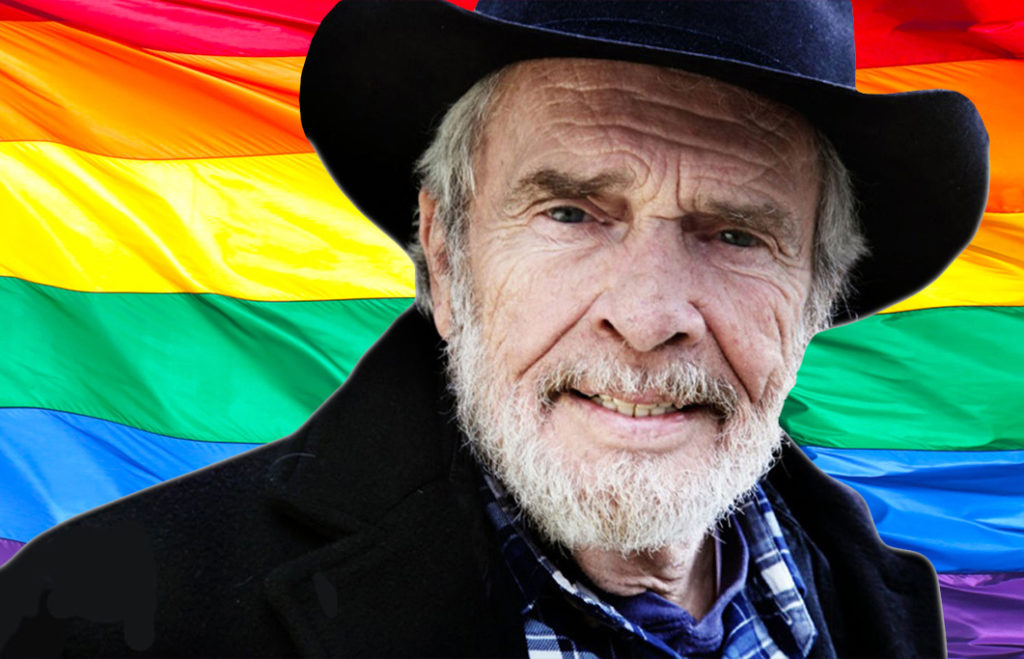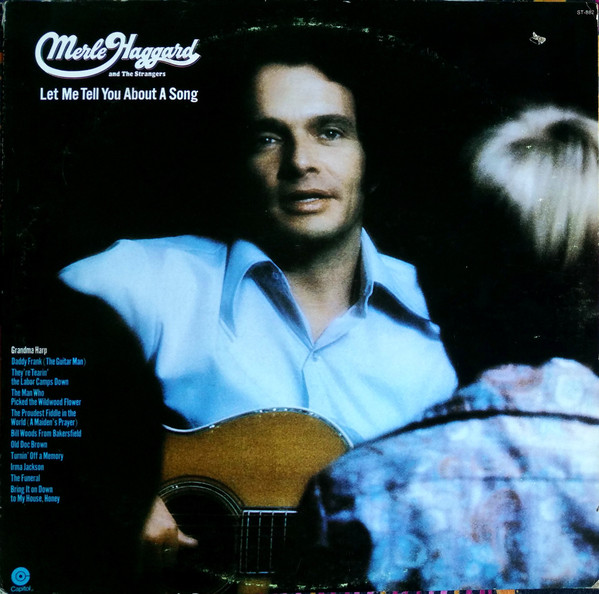I used to think dreams were our doorway into the next world. I thought that because after My Father died, he kept coming to me in dreams.

I remember once in a dream, we were walking and suddenly he stopped. I asked if he was coming with me. He said, “No, I stay here.”
Then I woke up.
I just woke from a different kind of dream. As it was coming to its conclusion, I found myself in a gas station that a couple was converting into some kind of restaurant. There were tarps between the bays in the old garage and the woman in the couple — an extremely friendly person, eager to talk and easy on the eye — kept me company while I waited.
I didn’t know what I was waiting for until Merle Haggard walked up. I was surprised by what a small man he was. I towered over him — something that just doesn’t happen to those of us of supremely average height.
He was thirsting to talk though and I was so pleased because it’s so rare that you get to tell an artist — especially one who is dead — how much their work means to you. We talked about various songs and their composition and some of his performing stories.
I talked about my daughter Mary, who works in the music business, and what an odd strangely-scheduled life it is. He began talking about the inspiration for some of his songs, and he couldn’t make it through reciting the lyrics to “(Mama’s) Hungry Eyes,” without sobbing.
We were both heaving, unable to speak because of our crying. Then I told him how much I enjoyed that album of his called “Let Me Tell You About a Song,” that came out in 1972. Each song was prefaced by its origin story. That album was my gateway drug to Merle. The songs I remember from that album spoke for racial tolerance and justice.
Talking about those songs, Merle collapsed again and I helped him up and he composed himself. After a bit, we dried our eyes and decided we needed to go our separate ways. I hugged him and told him I loved him and he smiled and said it’d been a pleasure.
I go out front of the former gas station and start walking west, toward the sun. It is blinding me, but I see a caravan of three cars heading my direction, going too fast. Next to the third car is a boy riding a bicycle, banging on the window outside the back passenger seat. I look inside the car — as best I can, considering the blinding sun — and see six riders, three in each row, stoic, looking straight-ahead, ignoring the boy. I jump back on the curb just before the kid would have run me over, and keep walking.
Behind me I hear a crash and turn in time to see one of the cars sailing through the air, and into another construction site across the street. I turn around and run to the crashed car nearest to me and pry open the door. The passengers are as before — steadfastly stoic, not at all upset by the crash. Still, I pull them from the car one by one. No sign of the boy on the bicycle.
I get the six people into the former gas station, for the accident has occurred right in front of the place, and ask the woman half of the couple of help me get water for the crash victims. I get each of them settled in one of the former car-service bays where I had been opening my heart and soul to Merle (and vice versa) just moments before.
I need to go find the other two cars and take care of those passengers. Just then a stretch pulls up in front of the station, driven by my former girlfriend Lisa — a woman I dated more than 20 years ago and haven’t seen since. I tell her what happened and she immediately parks the car and gets out to help. We find the six people in the second car, but they are wedged in too tightly to easily remove, so we bring them cups of water until we can free them.
Still no sign of the boy.
Then I wake.

Let Me Tell You About a Song
1972
